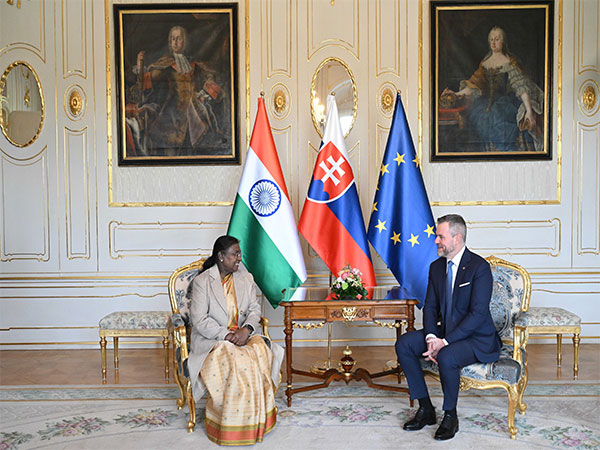BJP MP Khandelwal urges Piyush Goyal to take strict action against Amazon, Flipkart for 'violations of anti-trust laws'
Sep 15, 2024

New Delhi [India], September 15 : In the wake of Competition Commission of India (CCI) findings against Amazon and Flipkart, BJP MP and Secretary General Emeritus of Confederation of All India Traders (CAIT) Praveen Khandelwal urged Union Commerce Minister Piyush Goyal for his immediate intervention and necessary action to protect domestic retailers.
Khandelwal termed the CCI investigation report a historic case in global regulatory history, as both Flipkart and Amazon are found to have "committed brazen violations of anti-trust laws."
He urged the Union Minister for immediate implementation of e-commerce rules under the Consumer Protection Act and the introduction of a comprehensive e-commerce policy.
The BJP Lok Sabha member has also asked for prompt action against the brands named in the CCI report, as well as suspension of business operations for Amazon, Flipkart and the brands colluding with them.
He has also sought direction from the CCI to take legal action without delay against all offenders and has urged suspension of upcoming "festival sales" events of Amazon and Flipkart, as they will further harm domestic traders through the continued use of "anti-competitive practices."
Khandelwal claimed the Competition Commission of India (CCI) report regarding Flipkart and Amazon has exposed severe anti-competitive practices such as preferential treatment of sellers, deep discounting, and collusion with major brands. These activities have significantly harmed domestic traders and created an uneven playing field, he alleged.
The findings substantiate Union Minister Goyal's earlier statements expressing displeasure over the business practices of foreign e-commerce companies in India. This evidence clearly demonstrates that these companies are undermining Prime Minister Narendra Modi's vision of empowering domestic trade, he added.
Khandelwal further said that the CCI report identifies Flipkart Internet Pvt. Ltd. (platform operator), Flipkart India Pvt. Ltd. (wholesale arm), Instakart Pvt. Ltd. (logistics arm), 31 associated sellers, and six mobile manufacturers, including Xiaomi, Samsung, Realme, Motorola, and Vivo, for violating competition laws through practices such as the creation of preferred sellers, exclusive product launches, preferential listings, and deep discounting.
The investigation also examined Walmart's stake in Flipkart and its resultant dominance in the Indian retail market, exposing how their business strategies subverted India's FDI policies, he added.
He said that similarly, the CCI findings against Amazon Seller Services Pvt. Ltd. (the marketplace entity), Amazon Wholesale India Pvt. Ltd. (the wholesale arm), and their proxy sellers, Cloudtail and Appario, also implicate mobile manufacturers like Xiaomi, Samsung, and OnePlus. Amazon's market dominance and its subversion of FDI policies further raise concerns about its anti-competitive business practices in India.
While outlining the key concerns, Khandelwal said that it is harmful to competition and sellers: The activities of Flipkart and Amazon are "damaging competition and adversely affecting" third-party sellers on their platforms. It is also a violation of the Competition Act. Complaints from trade bodies such as CAIT and Delhi Vyapar Mahasangh All India Mobile Retailers Association (AIMRA) led to CCI findings that both platforms violated Section 3(4) of the Competition Act.
Khandelwal alleged that both e-commerce giants promote preferential treatment and collusion. These platforms engage in preferential listings and exclusive partnerships with specific sellers and brands, leading to an unfair market environment.
He termed both Amazon and Flipkart as "non-neutral marketplaces." Instead of acting as neutral platforms, both Flipkart and Amazon favour select sellers, disadvantaging the vast majority of sellers, he claimed.
Alleging brands as a part of the nexus with e-commerce platforms, he said that these platforms have exclusive tie-ups with smartphone brands such as Xiaomi, Realme, Samsung, Motorola, Vivo, and OnePlus, depriving many sellers of access to these product launches and limiting competition. Both the giants deeply indulged in preferential listings. Preferred sellers are given prominent placement in search results, giving them an unfair advantage over third-party sellers who lack the same visibility, he alleged.
He alleged that foreign funding allows Flipkart and Amazon to offer products at heavily discounted prices, especially during major sales events, undercutting smaller sellers, driving them out of the market and creating market monopolisation. These practices are aimed at eliminating competition, ultimately reducing consumer choices and driving up prices in the long term, he claimed.
Notably, these anti-competitive practices are not limited to smartphones but extend across various product categories, reducing millions of sellers to mere data points while benefiting only a select few, he further alleged.


















